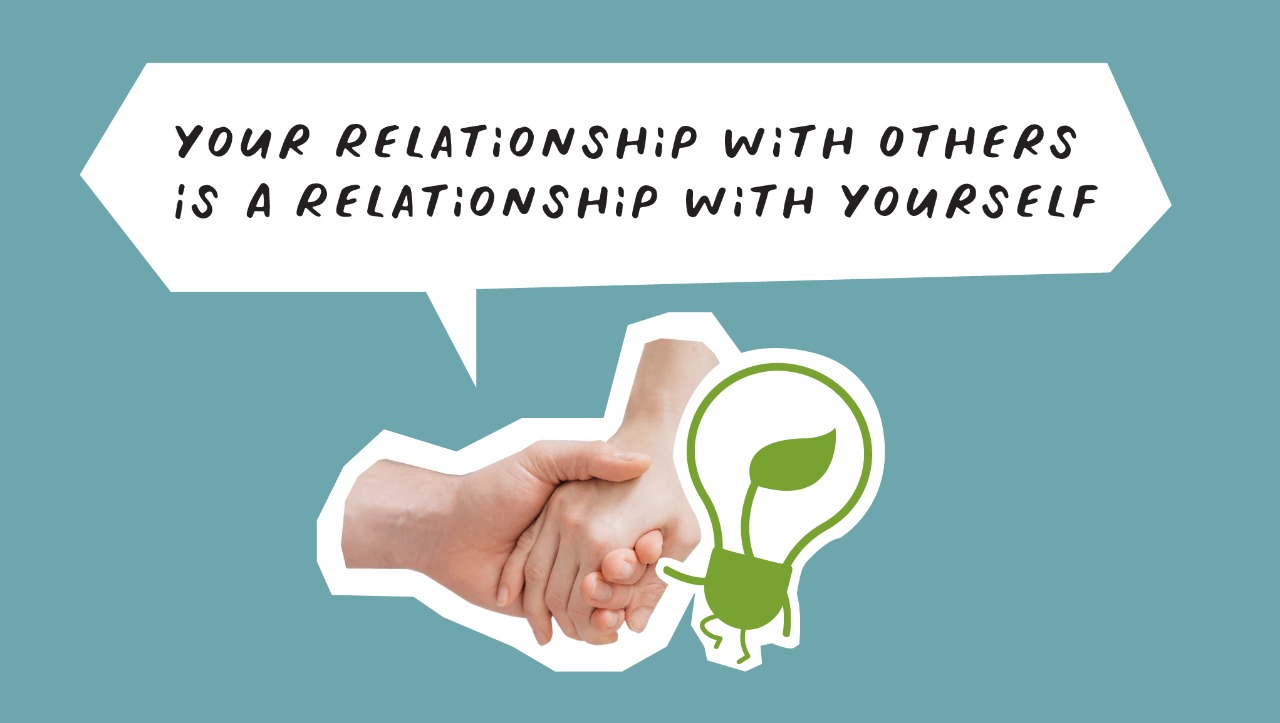TLDR: We are constantly being acted on by people and our environment via sense contact to develop relationships. But our relationship with others grows in maturity only when we learn to have a good relationship with ourselves.
All of us have relationships. The instant we are born, we have relationships with our parents. When we grow up, we learn about friendships and later romantic love, and marriage. Although it seems like relationships are between two or more people, our relationship with others is actually a relationship with ourselves
How Our Reactions Are Triggered
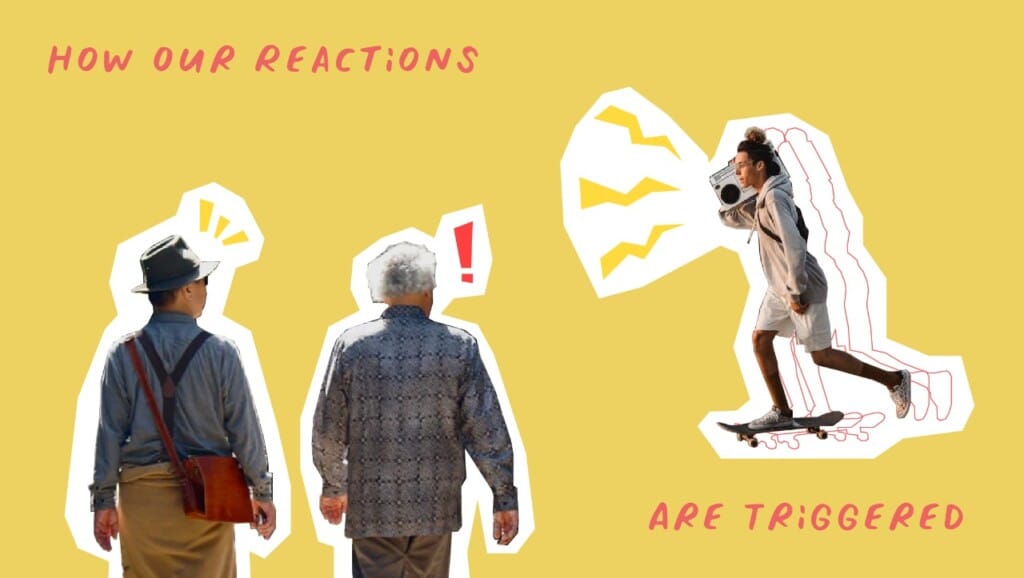
Think of yourself having a stroll in a quiet park. Suddenly, someone cycles past you from behind with his speakers blaring loud music. What would your response be? You may feel annoyed with someone breaking the beautiful silent walk and turn to see who that perpetrator is. Or you may turn around just to know who is playing the loud music. What triggered the response?
Our senses are always picking up on sense vibrations in our environment. In the case of hearing loud music, the ear has come into contact with sound vibrations. When we see objects, it is the vibration of light that has contacted the eye sense. If you go to a concert, you may find that even your body can feel vibrations of sounds.
It is from the vibrations of others’ voice, tone and facial expressions that we react and respond. We ourselves produce vibrations that affect others.
In this way, we are always being acted on by people and our environment through the senses. When the wind blows and the thunder roars, we can also feel the vibration throughout our bodies. It may cause us to wear a jacket to protect against the cold or hide under our blanket. Thus, we also form a relationship with our environment through vibrations.
Our Reactions Based On Expectations
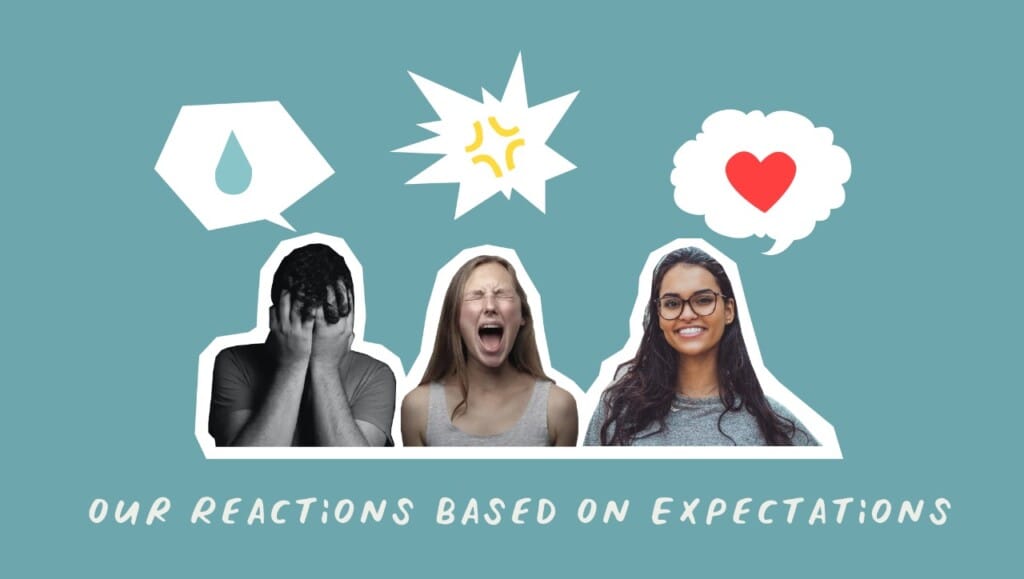
Most of us feel justified that our reactions are dependent on another person’s behaviour. If the other person is polite, we will be polite, if the other person is rude we will be rude. But haven’t you experienced that despite your warmth and courtesy, some relatives or even acquaintances remain cold and aloof?
Encounters with rude people when we are polite more often than not brings up a negative reaction from us. Since we hold expectations of how people should behave, we therefore react.
The kind of reaction we give also depends on our level of maturity. At a certain age or stage in life, we might just move on and ignore an impolite person. But if this difficult person is someone whom you live with at home, it is harder to ignore.
Relationships At Home
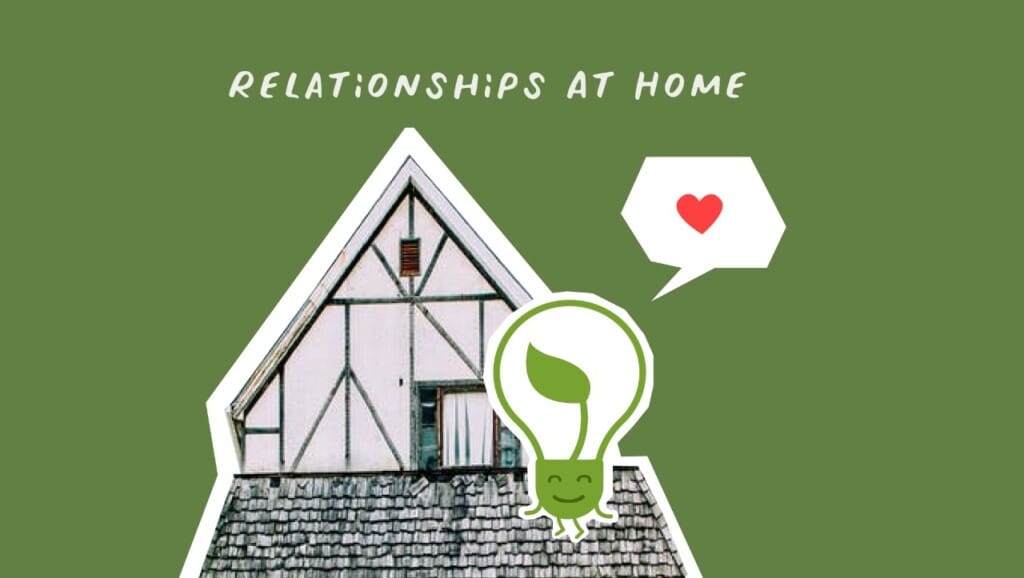
We cannot avoid facing our expectations of what people should be like in order to have a good relationship, especially with those we live with at home.
We expect our parents to be a certain way – perhaps we wish they are less angry, less nosy or more independent. We may also wish that our siblings could be warmer or less selfish. Where do we get these expectations from? We could have gotten them from being exposed to various forms of media to observing what others have that we do not have.
Relationships at home could be suffering or heavenly. If it is heavenly in the sense that everyone is equally caring and sharing, we may not attempt to look deeply into the relationship. But not many relationships are perfect. In the case of frictions, one may notice that when one backs off in a conflict, the altercation ends. I am speaking of normal conflicts at home, not abusive ones which require professional help. In fact, if one is in an abusive relationship, it is important to protect oneself by asking for relevant help.
However, when one backs down in a conflict, one may feel unjustified. For example, parents can feel justified speaking over their children with authority. The children, on the other hand, feel justified in saying they are right because their parents’ have an outdated view of the world.
How We Affect Those Around Us
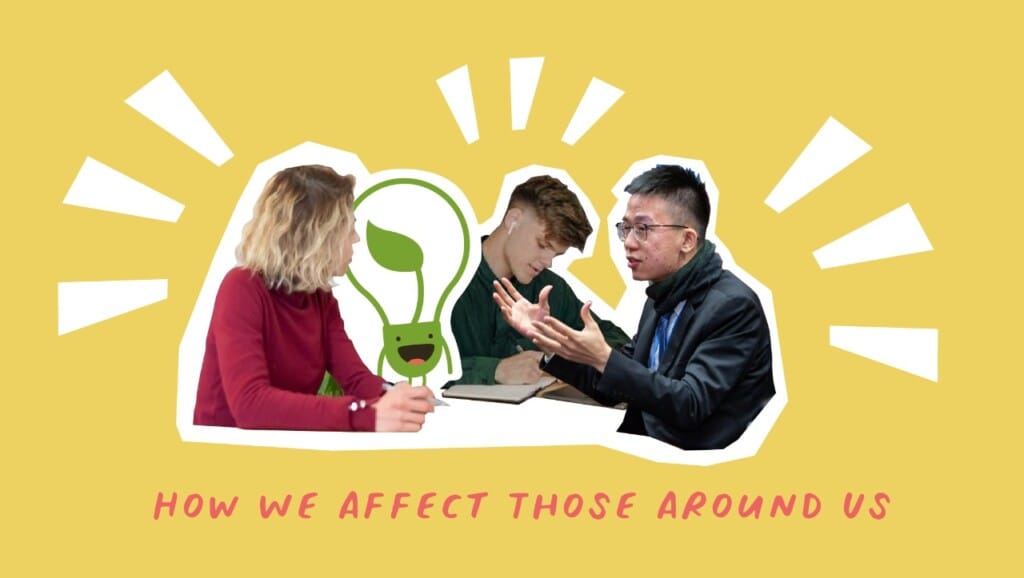
Since we are always acted on by outer vibrations from others and our surroundings, we are as capable of acting upon others. Unfortunately, in most conflicts, people do not see the wisdom of the Buddha’s teachings where he said that hate is never appeased by hate; hate is only appeased by love; this is an eternal law. The Buddha was speaking about a universal law that is inexhaustible. Most of us are aware of human laws but not universal laws, so we don’t experiment with it.
Imagine yourself yelling at someone with anger. How would your response be if that person keeps silent and agrees with you? This person then returns when you are sufficiently calmed to apologise and iron out your disagreements peacefully. How would you feel? Would anger continue to seeth within you?
Deep unresolved conflicts within the family can cause disharmony within an individual, who then brings his/her unhappiness to school or the workplace.
Unresolved strife developed in the family can also cause an individual to lead a company or society to a path of conflict if s/he becomes a leader in later life.
Conflicts do not only exist on the outside but from within. When we have thoughts of ill will such as anxiety or fear, do we appease it with love and forgiveness or more hate – such as hating ourselves for being a coward or not being able to do better? Besides having relationships with others, the key relationship in our lives is actually our relationship with our thoughts. Conflicting thoughts could be developed through reaction to unhappy family life in childhood.
Having A Good Relationship With Yourself Influences Others
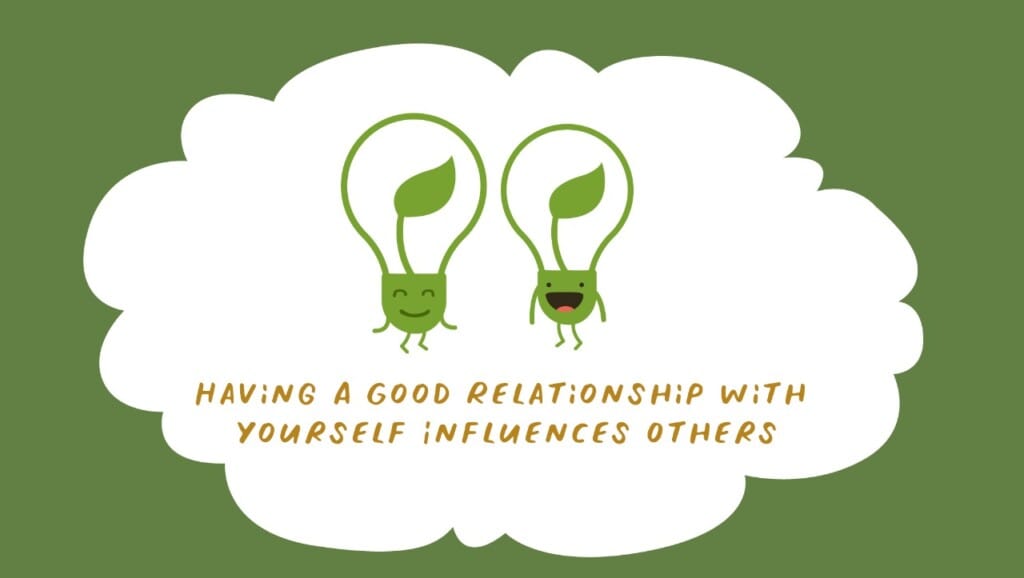
The good thing about friction with others is that it makes some of us look deeper within ourselves. We may start asking if we are hateful that others are mean to us? Or we may wonder if it is due to fate that we aren’t well respected by others. Or we could feel that people are mean and that the world is a dangerous place.
When we look deeper we may discover that the other person acting on us with anger or disrespect is also suffering.
We may discover that the unhappiness in the other has nothing to do with us but everything to do with themselves. Why would a happy and contented person behave rudely or selfishly if s/he knew how to make themselves happy? With this discovery, we may learn to be more forgiving towards others and to show more care, or to just let it be and not deepen potential conflicts.
If we look even deeper, we may find that our understanding of how to be peaceful with ourselves determines our relationship with others.
If we aren’t content or peaceful, it is hard for us to behave in a relaxed and tranquil way with others. When the conflict in ourselves is attenuated, the burden within gets lifted little by little and we become happier and instead influence others with our tranquillity.
Wise Steps:
- Find out if it is true that you are constantly acted upon by outer conditions through observation. When you are out walking during a hot day, do you react to the heat with thoughts? When your boss is talking to your teammate, do you start wondering what they are talking about without your knowledge?
- What do you do when you notice critical thoughts about yourself arising in your mind? Do you act upon it with more criticism or with forgiveness?
- Take the opportunity to test the Buddha’s teachings on hate is never appeased by hate but only by love. When someone brings his or her suffering onto you, try to respond with love and see what happens.

